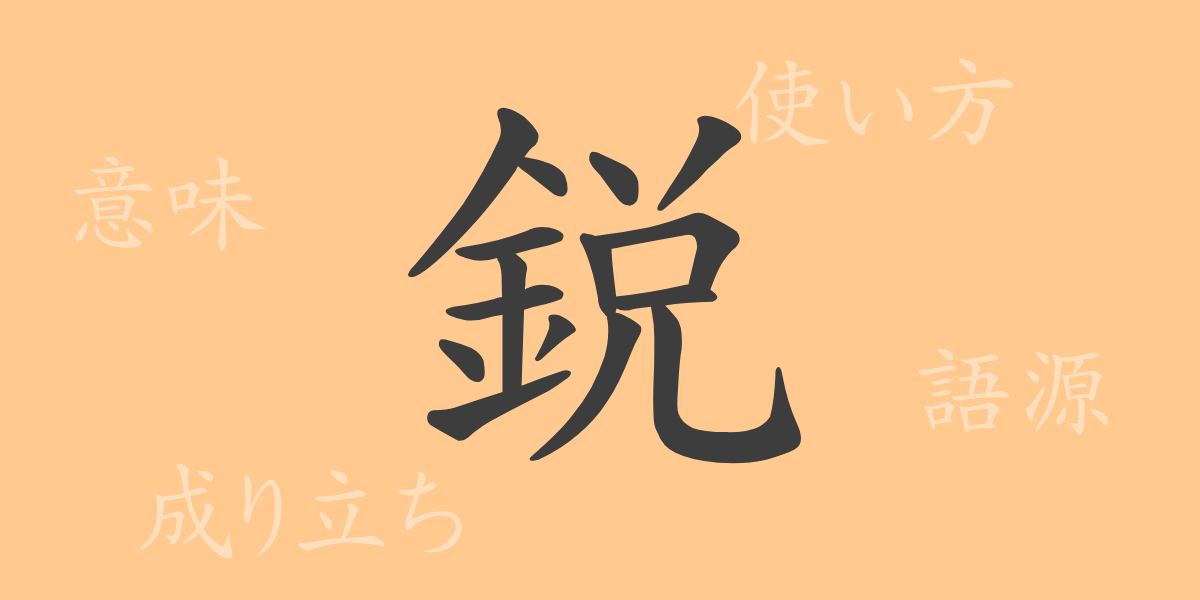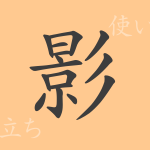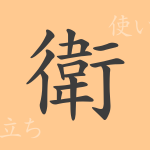“
Language is a treasure trove of culture and history. The Japanese language contains numerous kanji characters, each with its own unique story. In this article, we will focus on the Japanese common kanji “”鋭”” (Ei), exploring its deep meaning, background, and usage. How does “”鋭,”” which symbolizes sharp insight and senses, come alive in our language? Let’s delve into the world of “”鋭”” through this article.
The Origin of 鋭 (Ei)
The kanji “”鋭”” represents the act of sharpening and honing metal to a point. This kanji is composed of the “”金”” (Kin) part, meaning metal, and “”兌”” (En), which has a pointed shape. As metalworking advanced in ancient China, the concept of “”sharpness”” became more important, and “”鋭”” began to be used as a word referring to sharp blades or pointed states.
The Meaning and Usage of 鋭 (Ei)
“”鋭”” has meanings such as “”sharp”” and “”severe,”” expressing not only physical sharpness but also mental acuity. For example, it is used to indicate that one’s senses or thoughts are extremely sharp, as in “”鋭い観察力”” (Surudo-i -kansatsuryoku, keen observation) or “”鋭い批評”” (Surudo-i -hihyou, sharp criticism). It can also be used in expressions that mean diligence or effort, such as “”鋭意努力する”” (Eii doryoku -suru, to make strenuous efforts).
Reading, Stroke Count, and Radical of 鋭 (Ei)
How is the kanji “”鋭”” represented in the Japanese language? Let’s unravel its reading and components.
- Reading: The on’yomi reading is “”エイ”” (Ei), and the kun’yomi reading is “”するどい”” (Surudoi).
- Stroke Count: “”鋭”” has a total of 15 strokes.
- Radical: The radical is “”金”” (Kanehen).
Compound Words, Idioms, and Proverbs Using 鋭 (Ei) and Their Meanings
There are numerous compound words, idioms, and proverbs containing “”鋭”” in the Japanese language. These expressions are used in daily conversations and literature to add unique nuances. Here are a few examples:
- 鋭気を養う (Eiki -wo- yashina-u): To heighten one’s motivation or spirit.
- 鋭敏な感覚 (Eibin- na- kankaku): Extremely sensitive senses.
- 鋭意改善 (Eii kaizen): To make earnest efforts to improve.
- 鋭角 (Eikaku): Having a sharp angle.
- 鋭利 (Eiri): Being extremely sharp or keen-edged.
Conclusion on 鋭 (Ei)
The kanji “”鋭”” has a profound meaning that goes beyond mere shapes or material states, extending to human minds and actions. Just as a sharp blade cuts through objects, sharp thoughts and senses can sometimes move people’s hearts and offer new perspectives. When you encounter expressions using “”鋭”” in daily life, remember the rich meaning behind them. The sharpness and wisdom embodied by “”鋭”” will continue to enrich our language.
“

























